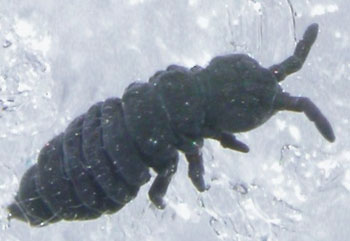A Flea's Antifreeze Could Aid Organ Transplants

Get the world’s most fascinating discoveries delivered straight to your inbox.
You are now subscribed
Your newsletter sign-up was successful
Want to add more newsletters?

Delivered Daily
Daily Newsletter
Sign up for the latest discoveries, groundbreaking research and fascinating breakthroughs that impact you and the wider world direct to your inbox.

Once a week
Life's Little Mysteries
Feed your curiosity with an exclusive mystery every week, solved with science and delivered direct to your inbox before it's seen anywhere else.

Once a week
How It Works
Sign up to our free science & technology newsletter for your weekly fix of fascinating articles, quick quizzes, amazing images, and more

Delivered daily
Space.com Newsletter
Breaking space news, the latest updates on rocket launches, skywatching events and more!

Once a month
Watch This Space
Sign up to our monthly entertainment newsletter to keep up with all our coverage of the latest sci-fi and space movies, tv shows, games and books.

Once a week
Night Sky This Week
Discover this week's must-see night sky events, moon phases, and stunning astrophotos. Sign up for our skywatching newsletter and explore the universe with us!
Join the club
Get full access to premium articles, exclusive features and a growing list of member rewards.
Snow fleas know how to ward off cold. They have natural antifreeze in their bodies that keeps ice from forming.
Now scientists say the antifreeze could be tapped to allow human organs to be stored at lower temperatures, increasing the time allowed between removal and transplant.
"Transplant organs must now be kept at the freezing point or slightly warmer,” said Laurie Graham of Queen's University in Ontario, Canada. “If we can drop the temperature at which the organ is safely stored, there will be a longer preservation period.”
Graham's team isolated the specific protein behind the antifreeze.
They say it might also be developed to help increase frost resistance in plants or inhibit crystallization in frozen foods.
Snow fleas are also known as springtails because they can leap hundreds of times their diminutive size of about 1 millimeter in length. Graham first noticed them while cross-country skiing.
“They looked like dots of pepper sprinkled on the snow," she said.
Get the world’s most fascinating discoveries delivered straight to your inbox.
The study was published in today's issue of the journal Science.
- New Hibernation Technique Might Work on Humans
- Dozen to Interview for Chance at Face Transplant
- Creatures Frozen for 32,000 Years Still Alive
- Storing Frozen Maggots
 Live Science Plus
Live Science Plus











